Trailblazing youth leaders at Brave Trails
Brave Trails has a mission to build the next generation of LGBTQ+ leaders. As a non-profit organization dedicated to LGBTQ+ youth leadership, they aim to help the youth thrive by giving them a space to find ‘their people, their place, and their passion,’ and take those skills and experiences gained at their camps out into their communities and the wide world to make impactful change.
“They offer several services throughout the year like mental health services, meet-up groups, and family camps,” Charlie Moon explains, “however their bread and butter is in running youth leadership summer camps for LGBTQ+ youth aged 12-18.”
Charlie Moon, who uses they/them pronouns, is the Operations Planner for Focusrite in the US, and this year, they brought the magic of music production to Brave Trails’ leadership summer camp.
“I attended the fifth session of Brave Trails in Maryland as a Cabin Counsellor and Program Lead. As a cabin counsellor, I helped supervise campers throughout the day. As a program lead, I designed a 7-day workshop where campers learned the basics of music production.”
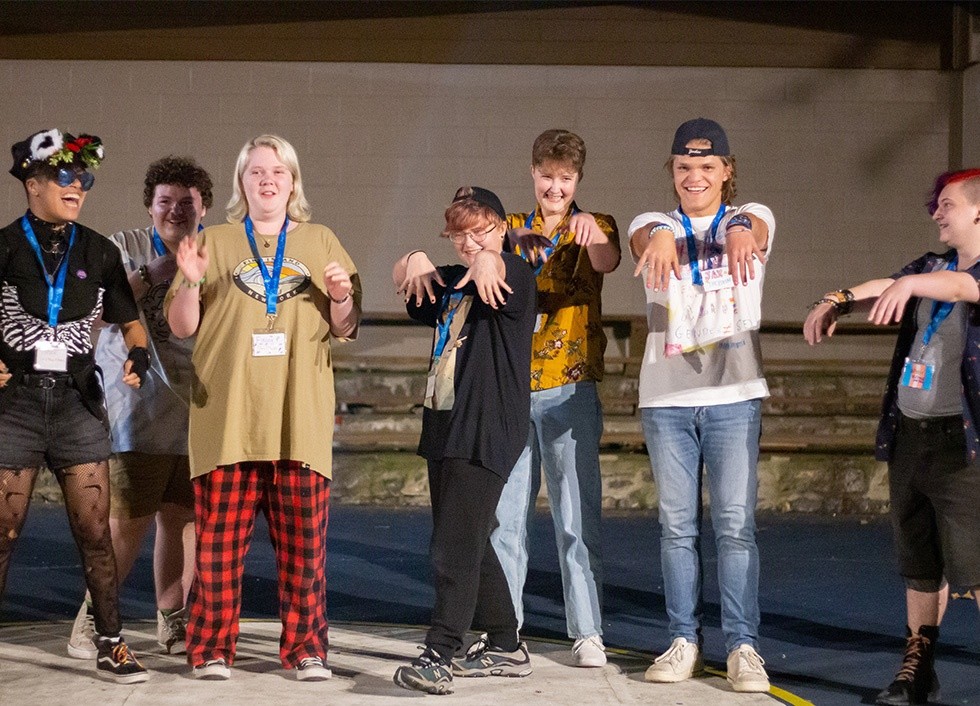
Founded in 2015, Brave Trails has been steadily growing each year since its launch, with this year being their biggest summer to date – five sessions throughout the summer served approximately 400 campers from 40 different states and ten countries. Four sessions took place in California and the fifth in Maryland.
“I became involved through my wife who learned about Brave Trails while volunteering for the Trevor Project,” says Charlie. “She has volunteered at Brave Trails Summer Camps for the past five years, but this year was my first.”
Charlie’s involvement with the Brave Trails summer camp was to teach music production to the campers. Their programme emphasised accessibility to music for all, providing them with equipment and essential know-how to get started making music and expressing themselves through song.
“Through the Focusrite ‘Pride in Music’ Diversity & Inclusion workstream, we were able to donate Focusrite Scarlett Solo Studio packs, Novation Launchkey 37s, and laptop rentals. Without these donations the program would not have been feasible.”
“The overall goal of the program was to have campers build an 8-bar loop adding a new layer or element each day, resulting in a track the campers could play at a showcase hosted on the last full day of camp,” says Charlie.
“Given that I had no idea what level of experience with music or technology the campers would have, I was striving to make an experience that was accessible even if you’ve had zero experience with either. Across the seven days, the structure covered the basics of the gear and software (Ableton Live Lite 11), Drums, Chords, Bass, Melody, Mixing and Showcase performance practice.”
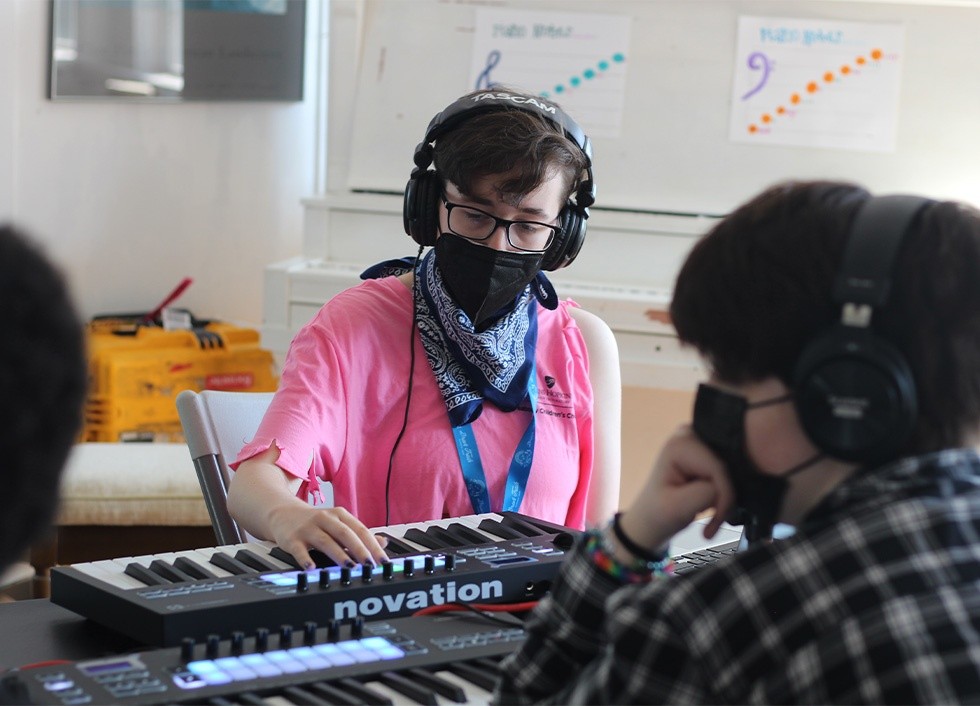
A typical day at Brave Trails
Between waking up, mealtimes and getting ready for bed, the camp included a range of activities, evening programmes and free time for the campers to chill, either on their own or with the wider community of the camp.
At the beginning of camp, campers chose their ‘Build On’ programs, with options between music production, musical theatre, poetry, and zine making, then attended their chosen program throughout the ten days of their stay.
Every night at dinner, campers could sign up for new workshops for each day, including LGBTQ+ History, Anti-Racism – mandatory for all campers and staff with the exception of POC campers who were allowed to opt out and attend a different workshop –, Public Speaking, Farming, Basic Design and many others.
Similarly, ‘Free Choice’ programs were available for daily sign-ups, which included dance, a high ropes course, archery, sports, astrology and BT Café – this was designed to be a quiet break space for campers who needed more down time, to hang out, talk to their friends, paint their nails or read a book.
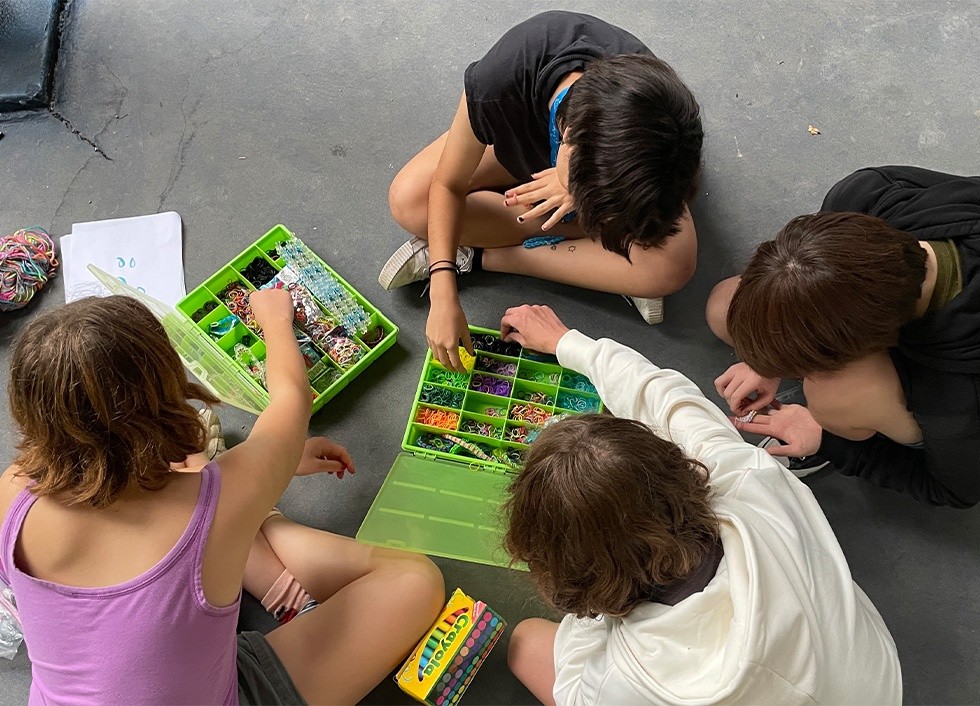
Trail Blazers Troops’ allowed the campers to discuss topics they had submitted at the beginning of camp in small groups. At dinner, campers chose from four different topics for the next day. Some examples of topics included neurodivergence, gender fluidity, anime, nature, Ace/Aro, makeup and fashion, and peanut butter – “I didn’t realize there was so much to say about this one,” Charlie remarks.
‘Cabin Chill’ and ‘Community Chill’ hours allowed campers to get on with tasks or activities including cabin cleaning, reading, card games, drawing, and writing notes home, either on their own or with the entire camp collectively. To wind down their days down, campers could attend evening programming, with activities such as talent shows, campfires and skit nights.
“One thing worth highlighting about the activities is that the staff worked hard to incorporate visibility and representation wherever possible,” Charlie explains. “For example, in Music Production, we began each day by highlighting an LGBTQ+ artist, discussing their accomplishments, and listening to their music. Another example was the sports workshop – it was led by a trans athlete who was able to talk with the campers about his experience coming out and transitioning as a professional athlete.”
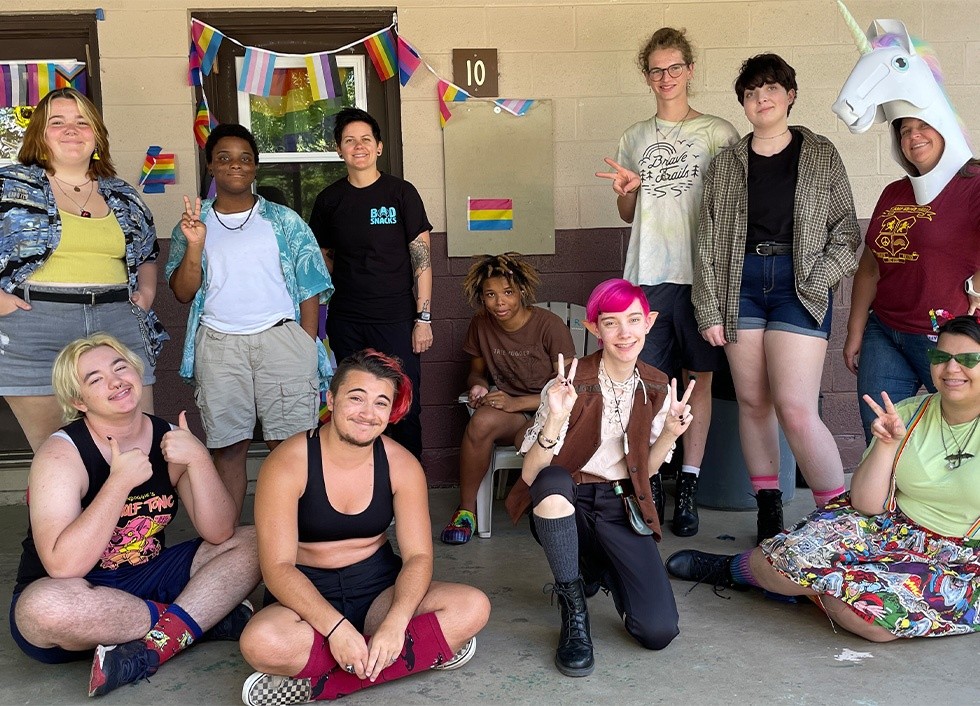
Unforgettable experiences
Brave Trails not only provides formative learning experiences for the campers, but for the camp leaders themselves as Charlie recalls through their experience.
“In general, I could not believe how amazing the youth at this camp were. There was so much talent, intelligence, and thoughtfulness. I really wasn’t sure what to expect, having not spent much time with kids since I was one, but they really blew me away.”
In particular, they point out their surprise in the musical skill of the campers and how fast they picked up music production.
“Musically, there was a self-taught guitarist and a few kids who were in school choir. On day one, we finished the software and gear lesson 30 minutes early and I quickly realized that making an 8-bar loop was going to be way too easy for this bunch. So, I worked in a composition lesson for the next day and instead of an 8-bar loop encouraged the campers to make a 2–3-minute song.”
As well as their innate aptitude for music production, the campers showcased as strong sense of community in their ability to work together. “We had five stations which meant campers would be working in groups of two or three. I thought the collaboration aspect of the program was going to be a hurdle. Who doesn’t have some bad memories from school group projects?” Charlie recalls.
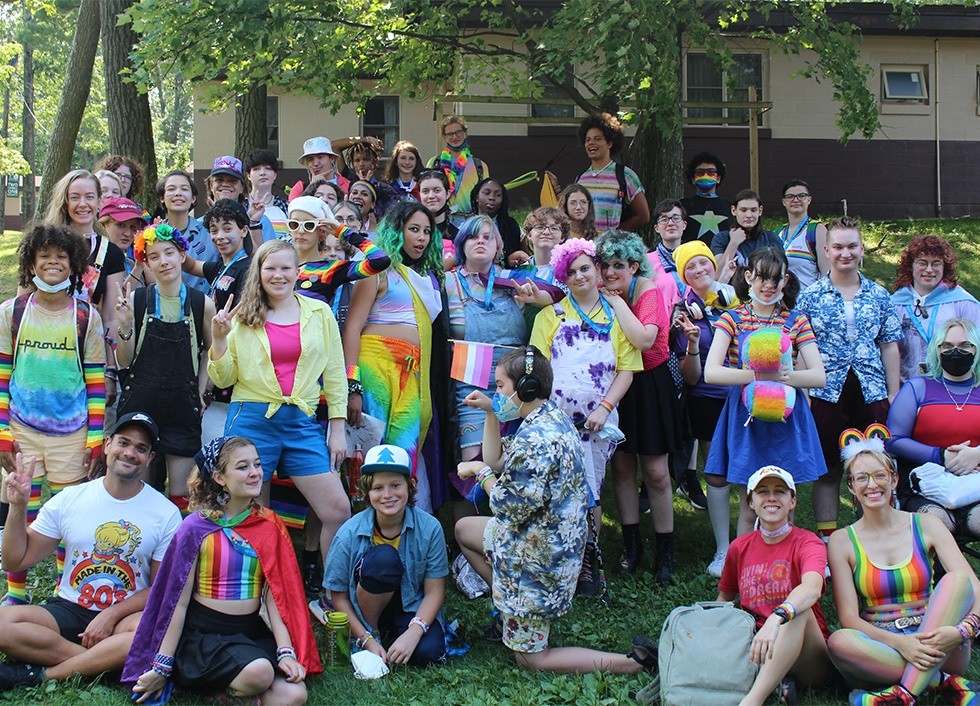
“It turned out to be the best part of the program. Watching the campers make space for one another, take turns with gear, encourage each other. It was incredible. On the third day, one group even announced they had all exchanged contact information so they could continue to be a band after camp.”
With so much to experience at Brave Trails, picking a standout moment would be hard, but with the intention of bringing in a new generation of LGBTQ+ youth into the world of music, Charlie highlights this as one of their most rewarding moments.
“I wanted to make music production accessible and fun. I wanted campers to leave my program feeling empowered to create,” explains Charlie. “Every time I got positive feedback from the campers about their experience in Music Production it was such a great feeling. Then I got to hear all their finished tracks for the first time – they did so well! Getting to be a part of their success was beyond rewarding.”
Brave Trails have built welcoming space for LGBTQ+ youth. The summer camps provide youth with an encouraging environment to explore their identities and learn from other members of their community. Spaces like these aren’t readily available to all who need them, and so leaving can be painful.
“The toughest part of camp was pickup day. There were a lot of the normal emotions I think kids have when leaving camp and saying goodbye to their friends, but there was another element to it at Brave Trails.”
“A lot of kids were anxious about returning to school,” explains Charlie. “Some were anxious about returning home in general. While there were plenty of happy reunions, there were also moments that highlighted why a camp like Brave Trails is so important. It was hard to be faced with the reality that these kind, talented, hardworking kids I’d gotten to know throughout camp weren’t all going home to places where they felt seen in the way Brave Trails makes possible.”
The importance of places like Brave Trails cannot be understated, as they provide these young campers with the chance to explore their identities within a community that validates their experience.
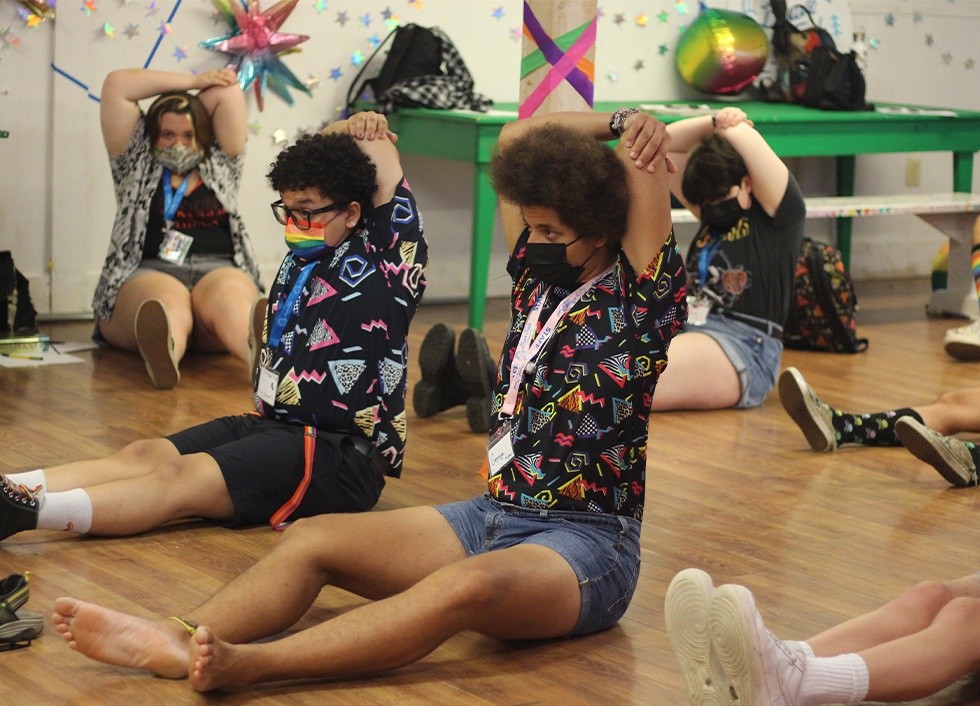
After Brave Trails
Since returning from camp, Charlie made the decision to come out as non-binary. “This is an aspect of my identity I’ve been aware for a long time, at least a decade, but had decided to keep private. Like the ‘not even my closest friends or family knew’ kind of private. I just thought that sharing that aspect of my identity would be an unnecessary inconvenience for those around me.”
Being at camp helped them realize a few things about their identity and how important it is to live as authentically as possible.
“I’d been giving myself advice I wouldn’t give anyone else, especially not those kids at camp. I deserve to hold this space for myself. I think we all deserve space to be authentic,” says Charlie. “Using the right pronouns is not that big of an ask and I’m doing absolutely nothing for the next generation of LGBTQ+ youth by choosing to keep my identity a secret. Visibility matters.”
While there are a multitude of ways one can support queer youth as they navigate through life, Charlie notes that one of the simplest ways to do so is by addressing someone how they wish to be addressed.
“I think one easy thing every person can do is to address people properly. Using the correct name and pronouns may not seem like a huge deal, but for a non-binary or trans person it can be hugely affirming.”
However, Charlie acknowledges that there will be moments where mistakes happen, and how we should approach rectifying that.
“Sometimes, you are going to mess up, so here’s something we were taught at camp. When you use the incorrect pronouns, an example of what not to do would be saying something like, ‘Oh my gosh! I am so sorry I messed that up. I don’t know what’s wrong with me. I’m just not good at these things sometimes. I’m just so sorry. I’ll really try to not do that again’. A good example of what to do is say something like, ‘Oh I’m sorry, I meant to say ____’ and just keep it moving.”
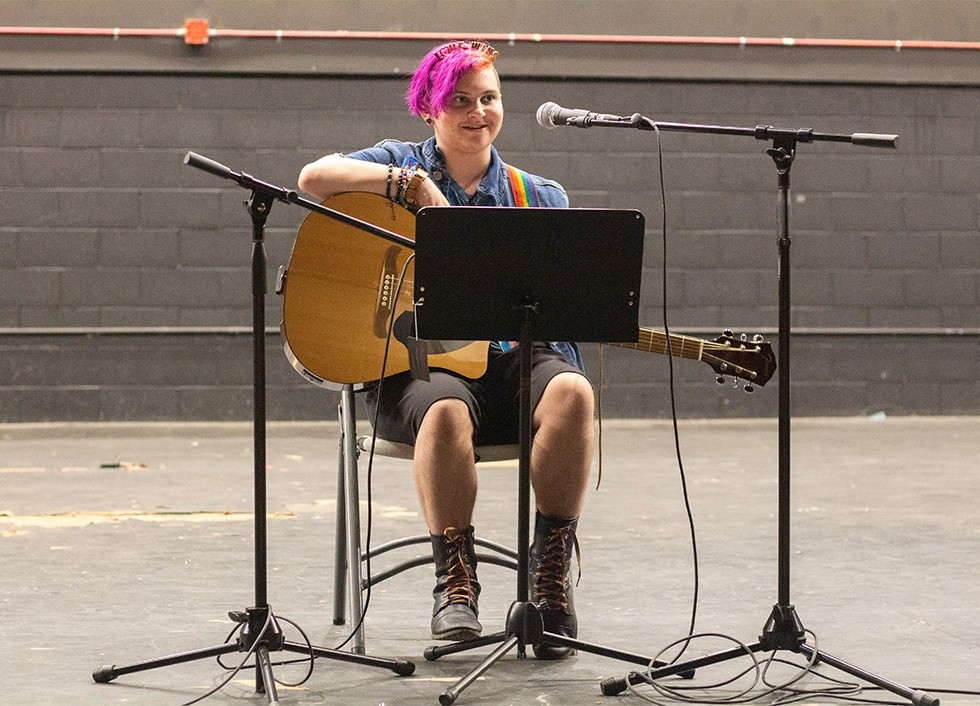
Currently raising funds for their ‘forever home’ location, Brave Trails aims to build a camp that is more accessible than typical ‘sleep away’ camp locations and increase the number of campers they can serve each year. “There were thousands of campers left on the waitlist this year,” remarks Charlie. “If you can make a donation, please do!”
Brave Trails gives LGBTQ+ youth the opportunity to build essential connections with people who have shared interests and experiences, but perhaps most importantly, Brave Trails affirms these experiences and allows these youths to feel seen, to exist freely, and to celebrate themselves and others like them.
Words: Zainab Hassan
